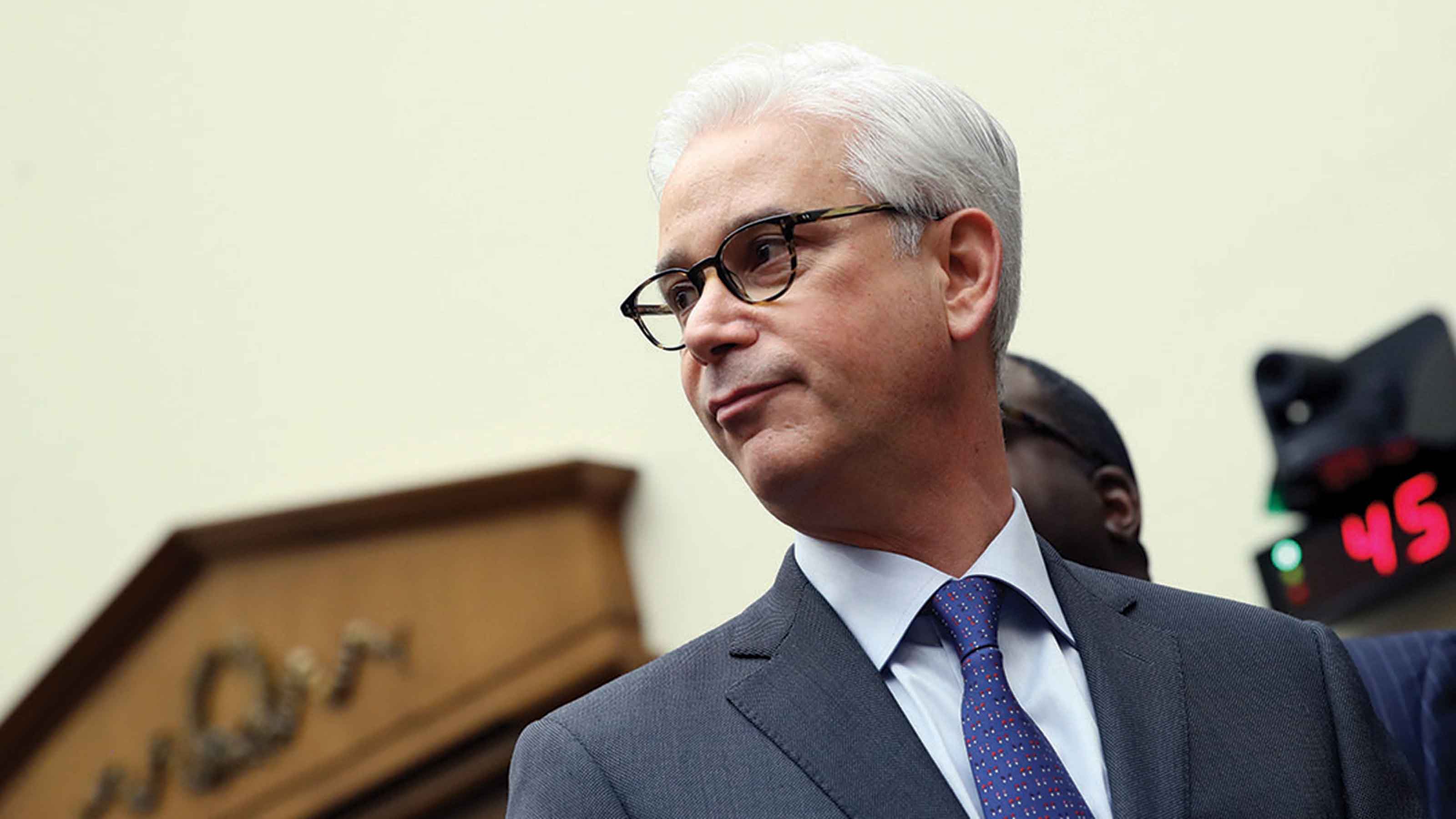Carbon Plan is Juicy But Problematic GOP Target
Republicans have been harshly critical of the tax hikes President Obama is proposing to reduce the deficit and pay for a broad variety of programs, but his proposal for raising revenue with a cap and trade program for carbon fuels is being singled out for special scorn.
Profit and prosper with the best of Kiplinger's advice on investing, taxes, retirement, personal finance and much more. Delivered daily. Enter your email in the box and click Sign Me Up.
You are now subscribed
Your newsletter sign-up was successful
Want to add more newsletters?

Delivered daily
Kiplinger Today
Profit and prosper with the best of Kiplinger's advice on investing, taxes, retirement, personal finance and much more delivered daily. Smart money moves start here.

Sent five days a week
Kiplinger A Step Ahead
Get practical help to make better financial decisions in your everyday life, from spending to savings on top deals.

Delivered daily
Kiplinger Closing Bell
Get today's biggest financial and investing headlines delivered to your inbox every day the U.S. stock market is open.

Sent twice a week
Kiplinger Adviser Intel
Financial pros across the country share best practices and fresh tactics to preserve and grow your wealth.

Delivered weekly
Kiplinger Tax Tips
Trim your federal and state tax bills with practical tax-planning and tax-cutting strategies.

Sent twice a week
Kiplinger Retirement Tips
Your twice-a-week guide to planning and enjoying a financially secure and richly rewarding retirement

Sent bimonthly.
Kiplinger Adviser Angle
Insights for advisers, wealth managers and other financial professionals.

Sent twice a week
Kiplinger Investing Weekly
Your twice-a-week roundup of promising stocks, funds, companies and industries you should consider, ones you should avoid, and why.

Sent weekly for six weeks
Kiplinger Invest for Retirement
Your step-by-step six-part series on how to invest for retirement, from devising a successful strategy to exactly which investments to choose.
Republicans have been harshly critical of the tax hikes President Obama is proposing to reduce the deficit and pay for a broad variety of programs, but his proposal for raising revenue with a cap and trade program for carbon fuels is being singled out for special scorn. There's a reason for that -- it's a fight the GOP could win, at least in the short term.
Obama's budget projects that a program for selling credits to companies that surpass a proposed limit on the amount of greenhouse gasses would raise $646 billion between 2012 and 2019. About a quarter of that would be used to finance clean energy RD projects and the rest would pay for tax cuts for lower-income and middle-class workers. Republicans argue -- correctly -- that the tax breaks will only offset some of the likely increases in energy prices that will result as businesses pass on their additional costs.
From a purely fiscal and political point of view, the issue is a rare bright spot for Republican strategists. Americans are sensitive about energy prices and taxes. One of the few issues that Republicans gained traction on during last year's presidential and congressional campaigns was the cry of "drill, baby, drill" as gas prices hit their peak and their push to end the ban on offshore oil drilling was nearly successful. So Republican attacks on cap and trade as a "hidden energy tax" could resonate widely. Democratic moderates from oil states and Democrats who fear the tax breaks won't do enough to protect taxpayers could easily tip the balance and do the idea in.
From just $107.88 $24.99 for Kiplinger Personal Finance
Become a smarter, better informed investor. Subscribe from just $107.88 $24.99, plus get up to 4 Special Issues

Sign up for Kiplinger’s Free Newsletters
Profit and prosper with the best of expert advice on investing, taxes, retirement, personal finance and more - straight to your e-mail.
Profit and prosper with the best of expert advice - straight to your e-mail.
But Republicans have a serious problem that goes at the heart of the debate tearing the party apart right now: Is it going to simply play the role of naysayer or is it going to become a party of ideas and try to tackle problems that affect Americans of all ideological stripes? In other words, if they succeed in killing cap and trade, then what?
A decade ago the country was unwilling to sign on to the Kyoto climate change agreement because of fears that doing so would hurt the economy and U.S. competitiveness in the name of a problem that many people weren't sure existed. But global warming and the need to address it are now widely accepted, and the policy question facing the world is not whether to move aggressively to curb emissions, but how. A global summit is being held in December to begin hammering out an agreement. Obama hopes his cap and trade proposal will be approved before that so the United States can arrive as a committed leader, not a bystander.
Even business, which has long opposed limits on the emission of carbon dioxide, is beginning to accept the inevitability of the idea. Many companies are warming up to the national cap and trade concept because they find it preferable to a patchwork of rules emerging from states acting on their own. In fact, many businesses are acting now to curb emissions to make it easier to comply down the road. Many also see reducing their carbon footprint as not just good financial sense, but as responsible corporate citizenship.
So if Republicans want to shoot down the cap and trade idea, they need to think through what will happen afterwards and what option they prefer. Given that there is virtually no scheme that won't increase the price of energy -- in fact, the goal of any strategy is to somehow make the use of carbon-based energy costly so it will be used more sparingly -- that won't be easy. If Republicans can't come up with an answer, killing cap and trade is simply kicking the can further down the road and reinforcing the notion that all the party cares about is taxes and obstruction.
Profit and prosper with the best of Kiplinger's advice on investing, taxes, retirement, personal finance and much more. Delivered daily. Enter your email in the box and click Sign Me Up.
-
 Betting on Super Bowl 2026? New IRS Tax Changes Could Cost You
Betting on Super Bowl 2026? New IRS Tax Changes Could Cost YouTaxable Income When Super Bowl LX hype fades, some fans may be surprised to learn that sports betting tax rules have shifted.
-
 How Much It Costs to Host a Super Bowl Party in 2026
How Much It Costs to Host a Super Bowl Party in 2026Hosting a Super Bowl party in 2026 could cost you. Here's a breakdown of food, drink and entertainment costs — plus ways to save.
-
 3 Reasons to Use a 5-Year CD As You Approach Retirement
3 Reasons to Use a 5-Year CD As You Approach RetirementA five-year CD can help you reach other milestones as you approach retirement.
-
 Airbnb Host Tells What It's Like
Airbnb Host Tells What It's LikeBusiness Costs & Regulation This Denver pharmacist began booking her ski condo a few months after the pandemic hit.
-
 Tough Times for a Family Business
Tough Times for a Family BusinessBusiness Costs & Regulation His dry-cleaning operation was rocked by the pandemic, but he is staying optimistic.
-
 IRS Gives Truckers a Tax Break in Response to the Colonial Pipeline Shutdown
IRS Gives Truckers a Tax Break in Response to the Colonial Pipeline ShutdownTax Breaks The tax penalty for using dyed diesel fuel for highway use is temporarily suspended.
-
 Reliving a Harlem Renaissance
Reliving a Harlem RenaissanceBusiness Costs & Regulation After a tough winter, two sisters look forward to reviving their restaurant’s business.
-
 Add a VPN to Surf the Internet Safely
Add a VPN to Surf the Internet SafelyTechnology To help you fight identity theft, consider adding a VPN.
-
 Stephanie Creary: Making the Case for Diversity on Corporate Boards
Stephanie Creary: Making the Case for Diversity on Corporate BoardsBusiness Costs & Regulation Adding underrepresented voices can improve a company’s bottom line.
-
 Kiplinger's 2020 Election Forecast
Kiplinger's 2020 Election ForecastPolitics For nearly a century, The Kiplinger Letter has forecasted the outcome of presidential elections to keep readers informed of what's coming and what it means for them. Here's our call for 2020.
-
 How We Lose When We Overlook Black Talent
How We Lose When We Overlook Black TalentBusiness Executives Comments from Wells Fargo CEO Charles Scharf (pictured) reflect a culture that tramples on clients’ trust and limits opportunities for people of color.